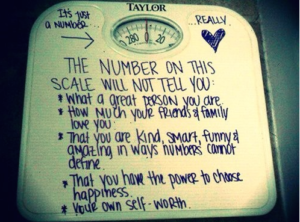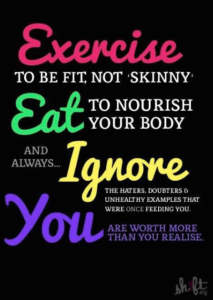Weight-loss is the number one ‘resolution’ every new year. If you are like most people in January, you maybe decided not to set any resolutions, but perhaps this is your year to:
“Lose some weight.”
“Shed some pounds.”
“Get ripped!”
I know that in my practice, I’ve had numerous patients tell me that their goal is weight-loss this year. I then ask them “what’s your plan to make that happen?”. Invariably their responses are “eat better and exercise”.
Aside – I was a highly respected and sought after personal trainer before I went to Chiropractic college. In January, our membership sales would skyrocket. As cliche as it is, within 3 weeks most people quit coming to the gym. All of them had the same goals – “weight-loss by eating better and exercise’
Let’s take a hard look at why people fail and how YOU can succeed!
The Weight-loss Epidemic – A look at the facts:
Weight gain after eating
It is well know that 95% of all dieters who lose weight will gain it back within 5 years. Of those that diet, 40% of people will gain even more weight than they lost.
According to the Centers of Disease Control and Prevention, over 1/3 of adults are obese. When it comes to weight-loss, we often think of adults. But it is a hot topic amongst today’s youth and has lasting negative effects. Girls who diet in their early teenage years are three times more likely to become overweight within five years, even if they started at a normal weight.
Poor self-image
For most people who struggle with their weight, there is a strong association of poor self-image. According to data from the Keep it Real Campaign, 78% of 17-year-old girls are unhappy with their bodies. As any one knows, this age group is highly influenced by their peers and weight is often a target to bullying.
It seems that body image challenges are starting at an even younger age. Staggeringly, 80% of all 10 year-old-girls have already been on a diet. As the parent of a 10 year old daughter, I can see challenges in discerning the difference between ‘healthy’ and ‘skinny’. As parents, it is important to keep lines of communication open and be sure to properly define terms with your kids.
Finally, in a survey of female college students, 44% who dieted were of normal weight! As university and college student struggle to move into adulthood, it seems that a large number of them are concerned with their weight.
Dieting can be dangerous
When it comes to dieting methods, many elect for the ‘starvation’ mode. In one particular study it was determined that 50% of teenage girls and one third of teenage boys use unhealthy weight control methods. This may include but not limited to vomiting, taking laxatives, fat-burning pills and improper fasting.
Eating disorders
It is estimated that up to three million people have an eating disorder in Canada alone. This statistic is regardless of age or gender. Men who have eating disorders are less likely to get help because of the connotation that it’s a “women’s problem.” Eating disorders come in different forms. Anorexia refers to when an irrational fear and the individual avoids food intake and psychologically sees themselves as being overweight or ‘fat’ when they are actually underweight or quite lean. Bulimia consists of high levels of guilt after binge eating or even consuming a proper amount of food and then purged usually through vomiting
Unsustainable
This is by far the largest reason why most people fail at weight-loss. Many people choose diets that are not sustainable lifestyle choices. They attempt to deprive themselves all at once. They force themselves to eat in a way that is radical for them. The results is usually a temporary improvement in their dietary habits only to succumb to the challenge of the ‘all or nothing’ principle.
The biggest problem with an unsustainable weight-loss regime is that is doesn’t treat the underlying cause. Overeating and unhealthy choices are often not about the food – but are triggered by emotional or mental causes, including trauma. It is our psychological understanding and philosophical premise of what food is and what health is that determines one’s success or failure at weight-loss.
The metabolism
By reducing caloric intake, we cause the body to decrease body temperature and reduce activity levels – thus decreasing energy burned and metabolic rate. This is the anti-thesis of what we want! Interestingly, someone who lost weight quickly will generally have a slower metabolism than someone who was at the same weight without diet. It is well documented that hormonal changes occur in dieters. Hormones that tell the brain when you’re full are decreased with weight loss. The hormone that stimulates hunger, ghrelin, is increased with weight loss. So we need ways to keep our metabolisms high, stay satiated and get all of our nutritional requirements.
The brain tells your body what it “should” weigh, within a 10 or 15 pound range. In the brain, the hypothalamus pushes the body back to “normal,” even if that normal weight is overweight, even seven years after original weight-loss.
“Diet” foods
Most marketed “diet” foods are made out of artificial ingredients. The truth about “Fat Free” products is that they are especially unhealthy. Mayonnaise, for example, is made out of a cup of oil, an egg yolk, vinegar, and mustard and is 98% fat – so “fat-free mayonnaise” is as fake as you can get! Manufactturers will often use sugar or starch fillers to thicken their ‘fat-free’ products. This in turn drives your insulin up, and increases your insulin resistance. Your body stops responding to insulin and you convert and store more fat!
But…but…but it’s fat-free!!
Non-sense.
Eat the full fat product. Butter, bacon, avocados. Eat it all.
Artificial sweeteners
Diet soda contains artificial sweeteners, which can confuse the body. The body is tasting sweetness, but not getting the expected energy from it, so it may promote overeating. Artificial sweeteners interfere with hormones in the body that regulates blood sugar and satiety. This causes you constantly disrupts your blood sugar levels making you always feel hungry.
So let’s dive into how we reframe our minds, change our habits and ultimately make sustainable changes that will help you stop the YO-YO!
The Anti-Diet Diet
First, let’s look for things in your body to be appreciative about! It can be anything…
- Your beautiful hair.
- Your strong legs.
- Your nice hands.
- Your ability to see.
- That you have skin.
- Your cheekbones.
- Get focused.
The more you focus on the things you like about yourself, the more things you will find to like about yourself. By showing your body love (no matter what it looks like now), you’re programming your subconscious to create more opportunity for you to love yourself (which may result in it decreasing your appetite and losing weight). You MUST change how you view yourself and your health.
Ask yourself:
Who do you want to be? Not what the magazines, your mother, your friends, your favorite instagram celebrity etc wants you to be. Think of yourself as how you want to be. I highly recommend writing out “What do I want?”. List ALL of the things YOU want.
Next – spend time everyday and visualize yourself looking how you want to. Even just a couple of minutes trains your brain to see and feel your body differently. The important thing is that you feel good during the visualization. Avoid negativity! Avoid the ‘haters’! Don’t partake in body bashing talks, and don’t read magazines/look at social media memes or photos that make you feel bad about yourself! Appreciate qualities in other people without comparison. Celebrate them for their accomplishments. By celebrating others you focus on abundance and attract compliments. If you notice negative qualities in others – realize you’re projecting thoughts about yourself onto them. Choose to think positive thoughts instead. Write down your thoughts in a journal and focus on what little step you took that day to move forward.
Please please please – Don’t weigh yourself. It is a terrible indicator of how healthy you are.
Your weight is NOT a reflection of WHO YOU ARE!
Intuitive eating
Eat when you’re hungry! Don’t “save your hunger” for certain times of the day – you’re more prone to overeating and missing your body’s signals when it’s hungry. Your body intuitively knows what it needs to be strong and healthy – listen to it. It might be scary to eat real foods with full fat, or without artificial sweeteners, but trust yourself! You might end up eating more calories at first, but your body will adjust!
Trust yourself!
Eat what you want, but pay attention to what foods give you energy, and which foods make you feel sick or tired. Focus on the foods that make you feel good! If you do eat “bad” food, don’t beat yourself up, or you’ll train your subconscious to make more poor choices – love yourself, and focus on eating healthy food again.
Stop eating when you are no longer hungry! Before starting your meal, think – if I get full before I finish everything on my plate, how can I store the food and eat it later? You should never feel like you have to clean your plate.
Sorry but your parents were wrong to enforce that habit.
Some people are scared of wasting food because “there are starving children in the world” – but how does your eating food that your body doesn’t need help them? If portion control is an issue, use smaller plates – you’re more likely to eat less! You can also drink a full glass of water prior to eating. The volume of water will fill you up and help you overcome the feelings of fullness.
Another thought on water – If you’re not sure if you’re hungry… Drink water: your body‘s signals for hunger and thirst are sometimes hard to distinguish.
Ask yourself how you’re feeling emotionally, and get to the root of it. If you’ve had a hard day at work or school, ask yourself “Are you eating because you have an emotional issue that needs to be addressed?”
Make eating enjoyable. Lots of fresh vegetables with a great lean protein is a energizing meal that feels great for hours. I always recommend and strive to have at least one fresh vegetable at every meal. The fibre and nutrients pack a punch.
Exercise
Find exercise that you enjoy doing – it can be anything. Don’t force it. Don’t force yourself to exercise at first. If you make exercise a punishment for your body, you won’t get positive results. See exercise as a way to love your body and make it feel energized! Exercise will always improve your mood. It is consistently the number one way to improve mood and decrease signs of depression. If you’re an emotional eater, exercise can help! Consider going for a walk and de-stressing before dinner. It will help you burn calories, build muscle and burn fat from your body.
Chiropractic Care.
I can’t even count the number of patients in my practice who have told me that they’ve lost weight since starting chiropractic care despite NOT changing any thing else. Chiropractic helps put the spine into proper alignment, so that the nervous system can function properly.
The nervous system is the master controller of the entire body. The nervous system sends signals to the brain that tells you when you’re full. A healthy nervous system can mean a healthy digestive system!
Chiropractic & the metabolic system
Chiropractic can help the metabolism by correcting underlying issues. Imbalances in the nervous system can affect hormone production such as blood sugar regulation.
The message behind chiropractic is that the body is an amazing, self-healing organism. At Synergy Chiropractic we’re here to support you – going to receive regular chiropractic care can be your reminder to love your body!








